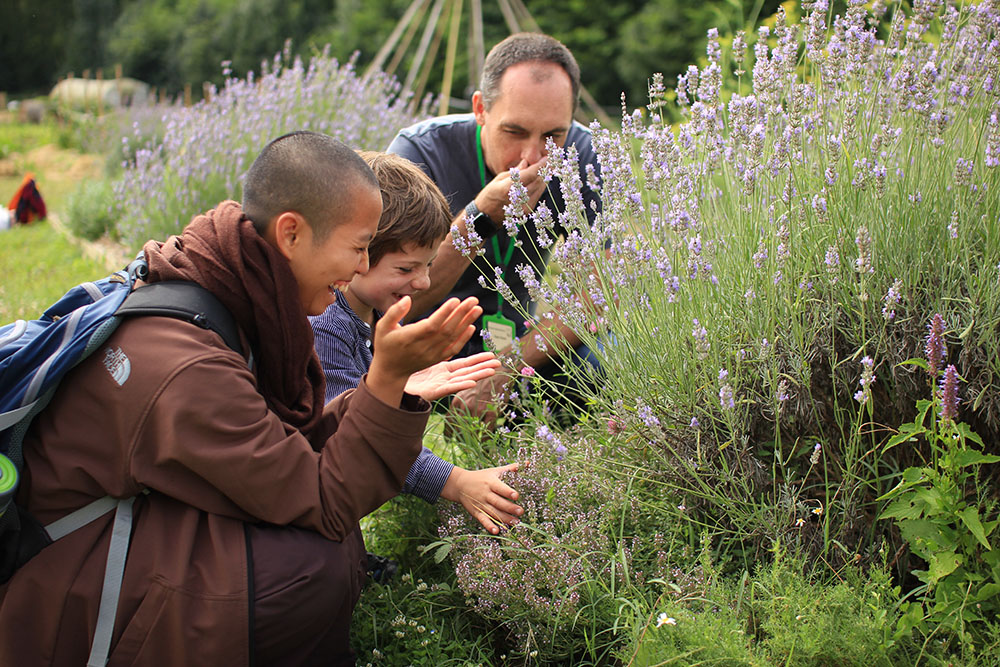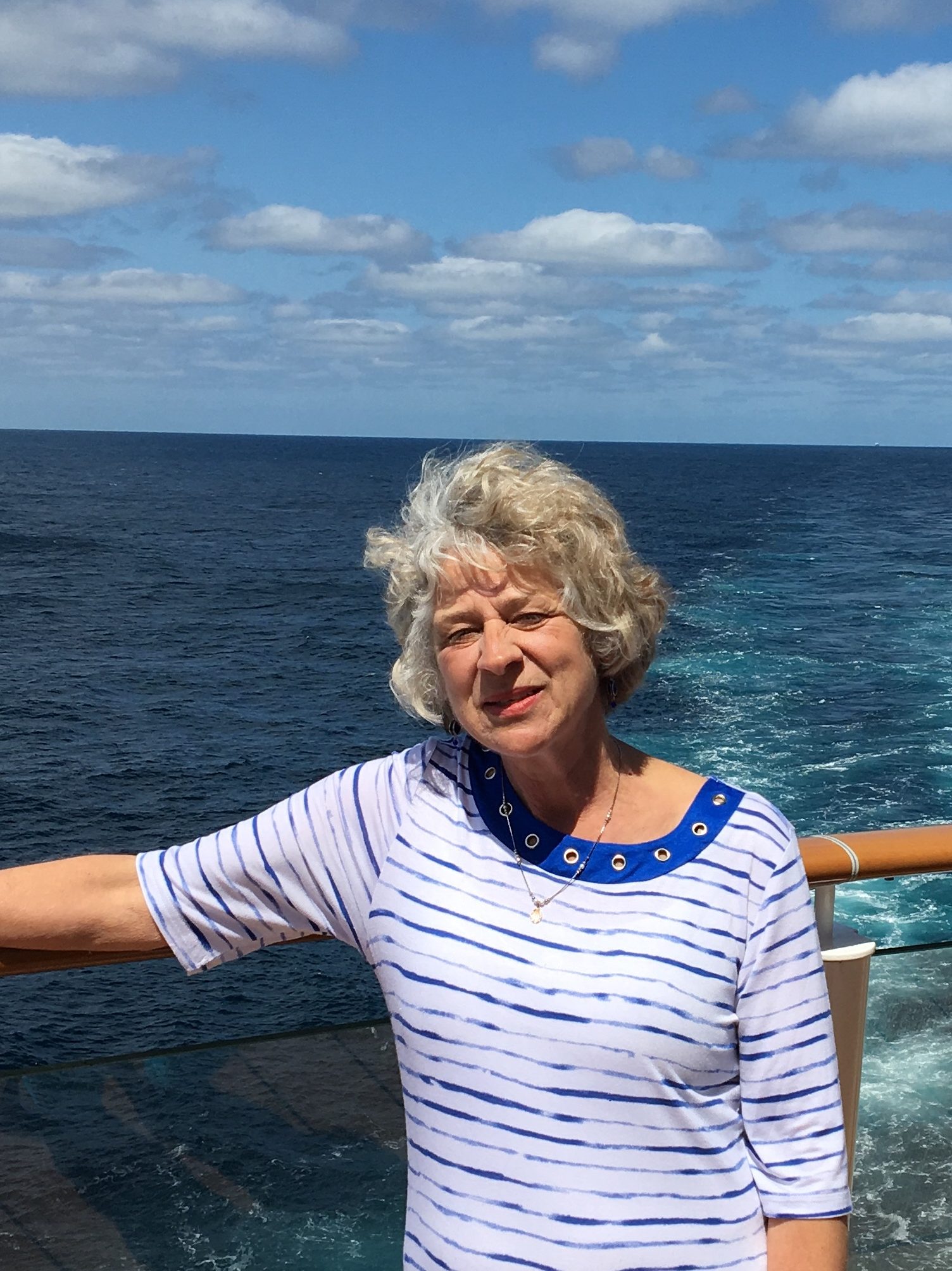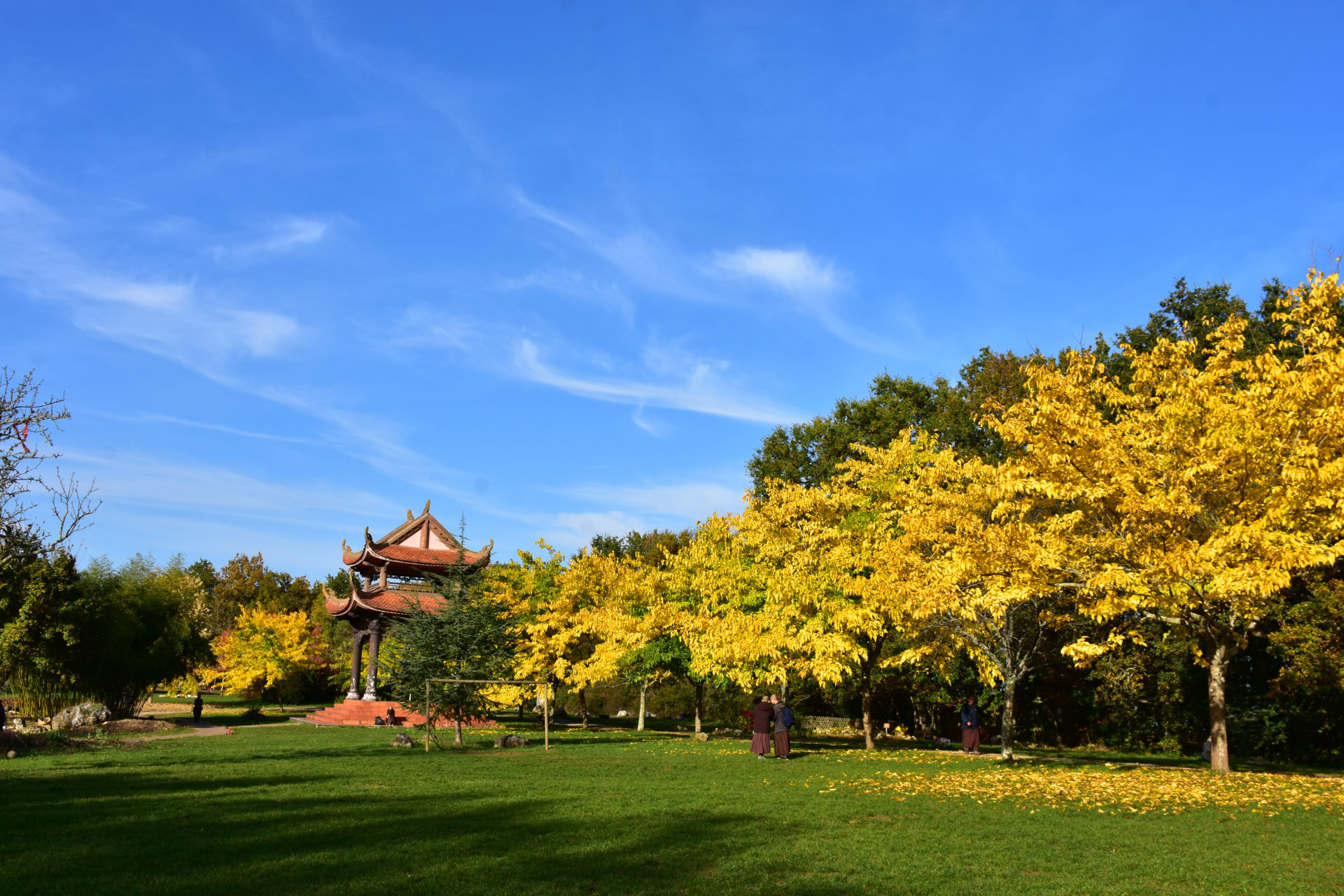By Ann Marie (Annie) O’Reilly

Being part of a dynamic, ever-changing Sangha has been a jewel for my practice and my life. Since my Order of Interbeing ordination, my heart has become wider. I have become more able to study, listen, and question my actions at our monthly recitations. After each training, we ask, “Have we made an effort to study,
By Ann Marie (Annie) O’Reilly

Being part of a dynamic, ever-changing Sangha has been a jewel for my practice and my life. Since my Order of Interbeing ordination, my heart has become wider. I have become more able to study, listen, and question my actions at our monthly recitations. After each training, we ask, “Have we made an effort to study, practice, and observe the training during the past month?”
Sometimes a particular training feels challenging, and a knot in my stomach may form because of missed opportunities to act, especially in our present social and political climate. Sometimes a training’s meaning expands for me. The substance of the training has changed since I have changed. What was once more simple has now become complex with branches of new meaning, and I have to stretch my resolve to rise to the new challenge.
This is how the Thirteenth Mindfulness Training has tugged at me lately. More than once, I needed to stop, breathe, and then do research. With the Sangha’s support, I can share my feelings and regrets during Dharma sharing. I can flesh out opportunities I am considering to fulfill this training. Often, I am reminded of the quote borrowed from the twelve-step tradition: “The one who is aware is responsible.” In fact, each mindfulness training begins with the word “Aware.” Breathing in and out to my stomach dissipates the bodily sensation, but the desire to act on my awareness is still there. With my Sangha sisters’ and brothers’ understanding, and my own recognition of inaction, I have taken some steps to study the Thirteenth Mindfulness Training more thoroughly.
First, I study the issues pertinent to the Earth’s environment and give to a few charities aimed at reversing climate change. Working for the Earth’s health is working for the happiness of the Earth’s inhabitants. I look around and do the small daily actions that preserve the Earth’s resources by line-drying my laundry, using cloth or no napkins, eating organic food, and growing a garden without chemicals. During my first retreat with Thay at Blue Cliff Monastery, I noticed there were no paper napkins. I use that realization as an example to my friends that a monastery in the Plum Village Tradition has the ability to feed more than a thousand people, without a napkin in sight. This inspired me to make and use small cloth napkins I provide at picnics or parties. This is my way of practicing generosity of material resources.
I am aware many inner-city dwellers and indigenous people suffer because we don’t take them into account when dumping pollution, building pipelines, and testing nuclear weapons or other dangerous items in their neighborhoods and on their ancestral lands. These actions may benefit a few, but the people affected are deprived of their way of life and spirituality that brought happiness and well-being to them and their ancestors. I can make sure my investments do not support these actions.
Personally, I have started volunteering in a popular program for pre-school children of my area and their parents. Studying nature through stories, being outdoors with nature, making crafts, and singing songs—many in the Plum Village Tradition—I am fulfilling my love for young people and the Earth. At the same time, I am reaching out to their parents as they experience love for the Earth through a child’s eyes and learn more ways to create beauty with found natural objects. The children have made pine-cone animals, snowmen from sliced downed tree branches, and bird feeders from used plastic bottles, to name a few. This calls forth generosity of time and effort, and gives me great pleasure.
Making sure my investments are aligned with my values as put forth in the Thirteenth Mindfulness Training may take lots of time to investigate. Reading articles about what is being done to our Earth has helped me narrow the ways I can invest in groups, companies, and practices that contribute to the wellbeing of all species on Earth. I can do this through my actions, investments, charitable giving, and volunteering. Not investing in the harmful practices is more difficult, but that can clear the cobwebs in my conscience.
I ask questions and read the prospectuses of my IRAs. I know I am not alone when I confess to throwing prospectuses in the recycling without reading them. They are boring and tedious. But when I knuckle down and read them, I am shocked to see I have been bankrolling the social and racial injustices I object to: weapons manufacturing or oil companies that pillage lands through hydrofracking. This new awareness gives me a sinking, hot feeling in my solar plexus in that moment. With the help of breathing through these sensations and Dharma sharing, I investigate more Earth- and justice-friendly investments, while divesting myself from more harmful ones.
I also tell my investment advisor in a determined, kind way that my value of not investing in companies that contribute to harming our Earth and its people is not negotiable. This is difficult, but I do it to expand my generosity of conscience and practice loving kindness for the happiness of others. Weaponsfreefunds.org is a good source for investigating companies around the issues of weapons manufacturing.
Currently, thousands of immigrants are fleeing unimaginable suffering—starvation, violence, and injustice—making their way to the US border for safety and a chance to escape horrible conditions. These people are being detained by companies that profit from their suffering. I am beginning to divest myself from these companies, such as Geo Group, CoreCivic, and Comprehensive Health Services.
As a Sangha, we Blooming Lilacs decided to be generous with our time. At a Day of Mindfulness, we hosted two people who had been on both sides of the border to witness or give humanitarian aid to asylum seekers. Milo spent a month in Nogales, Arizona, volunteering with the group No More Deaths; Barbara went to observe a soup kitchen run by Kino Border Initiative and a shelter run by the Samaritans, who leave life-saving supplies in the desert for asylum seekers. She also witnessed a trial of four people from those groups—volunteers who were arrested on trespassing charges for leaving food, water, and blankets on the “Devil’s Highway” area of the Cabeza Prieta National Wildlife Refuge, a desolate and dangerous desert area. We learned the North American Free Trade Agreement and a long drought have put many farmers and others out of work in Central America.
We also learned the United States has been giving military aid to repressive regimes. Many of us have been anguished by the news of children being separated from their parents, but we had not heard of the conditions experienced by those who cross the treacherous, remote desert, and become sick or die in the process. I decided to financially support the humanitarian aid groups. Milo and Barbara also urged us to work for justice where we live, if we are physically unable to go to our southern border with Mexico. To that end, I recently heard of a group of people mainly from Rochester, New York, who have begun to shelter migrant families as they await a more permanent residence. I have begun getting rooms ready and doing laundry for the families. In this way, we practice generosity of hospitality.
My hope and aspiration as an Order of Interbeing member is to become more aware and examine my actions, in meditation or Dharma sharing, and to share what I have found. Will my actions make a difference for reversing global climate change or reducing the suffering of others? I am not sure, but I feel better by doing what I can reasonably do for the happiness of people, animals, plants, and minerals.

Ann Marie (Annie) O’Reilly, True Precious Body, has been involved with the Blooming Lilac Sangha of Rochester, New York, US, for many years. She is very grateful for the opportunities of practicing with each month’s Day of Mindfulness, weekly sitting meditation, and retreats offered by Joanne Friday and Michael Ciborski. When not playing her ukulele, she can be found at Humphrey Nature Center or enjoying the outdoors with her Sangha, husband, three adult children, and two grandsons.

